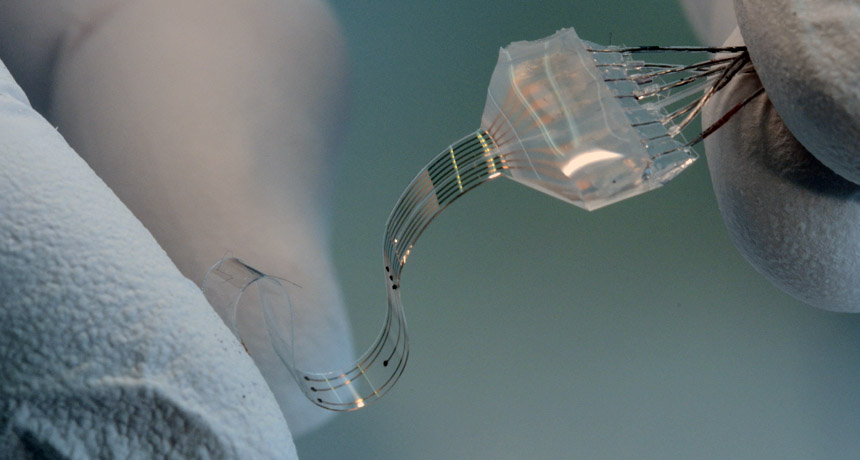Soft brain implant helps paralyzed rats walk again

Flexible neural implants like this one deliver electrical and chemical stimulation to damaged tissue. In a new study, such implants helped paralyzed rats walk again.
© EPFL 2015

Flexible neural implants like this one deliver electrical and chemical stimulation to damaged tissue. In a new study, such implants helped paralyzed rats walk again.
© EPFL 2015